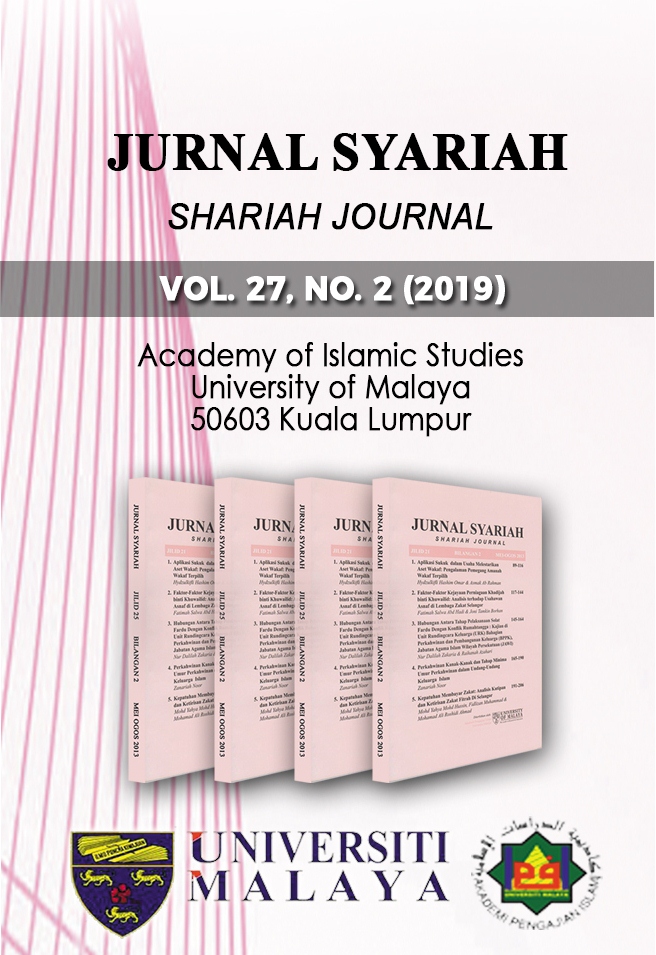ILLEGAL LABELING AND THE ABUSE OF HALAL CERTIFICATE: CASE STUDY OF MALAYSIA
DOI:
https://doi.org/10.22452/js.vol27no2.7Keywords:
Malaysia, illegal labeling, abuse of halal certificate, halal logo, Muslim consumers’ rights, MalaysiaAbstract
In a culturally diverse country like Malaysia, halal logo plays an important role for Muslims to differentiate between halal and haram under the purview of Shariah principles. Product labeling provides a variety of choices to the consumers, contributing towards the value and usefulness of the products. The general thoughts of a consumer about food labeling are information about specific characteristics and the identification of food products with certified quality. However, halal labeling is a contemporary phenomenon and getting halal food itself is a challenging task. On the other hand, it is not easy to investigate the product once the food is packed. As a result, the Muslims depend on the responsible authority to check the status of halal and harmful products. Nevertheless, implementing halal certification in Malaysia is a voluntary act that creates some issues with illegitimate and unlawful use of the halal logo and halal certificate. That action impinges on the sensitivity of Muslim consumers in Malaysia and therefore, they may hesitate to buy or have doubt in selecting food and other goods for their consumption. This article describes some of the important issues regarding halal logo, explores the governments initiatives taken to expand the laws regarding the logo, the case study of the dilemma in issuing the halal logo as well as criminal liabilities and how illegal labeling violates the Muslim consumers’ rights. In addition, it aims at drawing attention to policy-makers of necessary steps to improvise halal standard governance in Malaysia.
Downloads
Downloads
Published
How to Cite
Issue
Section
License

This work is licensed under a Creative Commons Attribution-NonCommercial 4.0 International License.
COPYRIGHT: All rights reserved. Not allowed to be reproduced any part of articles and contents of this journal in any form or by any way, whether electronic, mechanical, photocopying, recording or otherwise without permission in writing from the Chief Editor, Jurnal Syariah.











